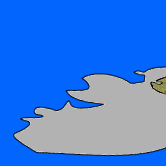 |
 |
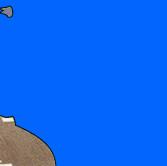 |
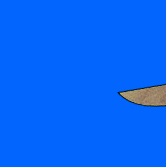 |
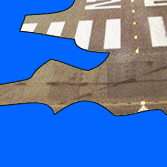 |
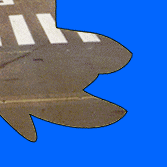 |
 |
 |
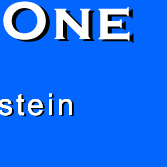 |
September 3, 2001The
Media's Double Standards
|
|
Text-only printable version of this article Go to the most current column by Emmanuel Goldstein Sign up to receive Airstrip One by e-mail Emmanuel Goldstein is the pseudonym of a political drifter on the fringes of English classical liberal and Euro-sceptic activity. He is a former member of the Labour Party, who knows Blair and some of his closest buddies better than they realise, yet. He has a challenging job in the real world, working for a profit-making private company and not sponging off the taxpayer in politics, journalism or the civil service. "Airstrip One," appears Mondays at Antiwar.com. |
BORDER WARSThis is precisely the government's problem. There are three very suspicious deaths, which could cause acute trouble for the present deployment in Macedonia, as some serious questions would be asked about our allies. The first involves a strange helicopter crash on the border of Albania and Macedonia in April. The area where the helicopter was downed, Kacanik, was an area of extensive KLA activity. It was a crucial point in the route for Kosovan arms and troops to the nascent rebellion/invasion in Macedonia, a traffic that NATO was trying to prevent (at the time). The puma helicopter, an all-weather helicopter, may have been downed by the atrocious weather at the time or it may have been downed by stinger missiles. The Ministry of Defence promised a "full investigation" while at the same time denying that there was any indication of hostile action. How you can have a full investigation while at the same time ruling out one of the main possibilities eludes me. MYSTERIOUSLY APPEARING MINESThen there was the landmine. Another British soldier was killed a week later, while also on patrol, while also looking to intercept KLA arms smuggling, while also in the tiny area of Kacanik. This time it was the Serbs, at least according to our military. Why the Serbs? They had been out of the area for two years, and the really dastardly thing was they planted the mine so deep that it wouldn't go off and then waited for the rain to uncover it. Of course, the idea that the KLA planted it a couple of days ago on a busy road they controlled, that is out of the question. The death of a Russian soldier in Kosovo or the downing of an unarmed US spy-plane over Southern Serbia are also not really anything else but tragic accidents. That they all occurred in the same fortnight in April is regarded as coincidental. JUST TELL US THE TRUTHThese may be what we are told, tragic deaths. However, there is an alternative explanation. The motivation of the KLA is clear, to stop NATO monitoring of the arms smuggling to Macedonia. The motivation of any Western cover-up of these deaths, the anger of the public when they see their troops butchered by their allies, is also clear. The response of the West, to cover up the failure to de-claw the Macedonian rebels by putting in place a sham disarmament program is a perfectly plausible reaction to any KLA blackmail. Of course, this may be the rambling of an armchair commentator seeing a sinister pattern in accidental connections. However, the West is reacting in a strange way. Please Support Antiwar.comA contribution of $50 or more will get you a copy of Ronald Radosh's out-of-print classic study of the Old Right conservatives, Prophets on the Right: Profiles of Conservative Critics of American Globalism. Send contributions to Antiwar.com or
Contribute Via our Secure Server |

